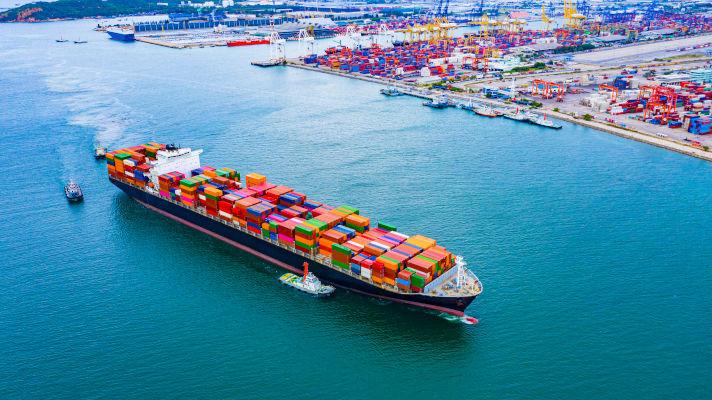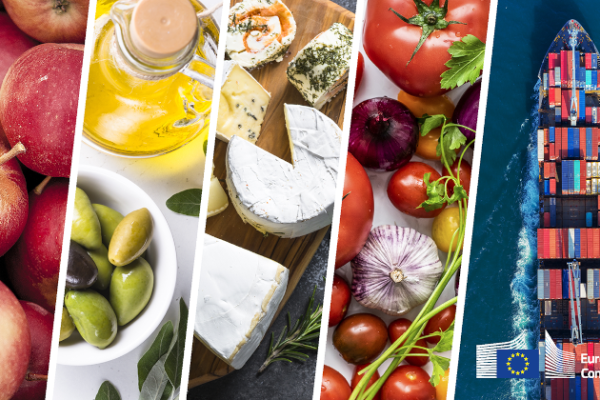Overview
The international dimension is part and parcel of the common agricultural policy (CAP), as maintaining a healthy balance of imports and exports is key to safeguarding internal market stability.
In order to ensure the delivery of the CAP objectives, the European Commission collects statistics and produces analyses of agricultural trade and international agri-food policy developments.
Monitoring EU agri-food trade
The monthly agri-food trade report provides the most up-to-date information on imports and exports of EU agri-food products. The series highlights the latest statistics relating to trading relationships and product categories, identifying notable developments and emerging trends.
Latest edition

- General publications
- 24 February 2025
The latest monthly agri-food trade report shows imports and exports of EU agri-food products in November 2024.
Annual EU trade with third countries
The European Commission produces a series of country and region based factsheets to provide a comprehensive overview of EU agri-food trade across the world.
The factsheets create a picture of the EU’s agri-food trading relationship with the respective countries and regions by:
- focusing on key agricultural and trade indicators,
- outlining the balance of exports and imports,
- and providing a breakdown of trade by product categories.

Monitoring agri-trade policy
Monitoring agri-trade policy (MAP) is an annual publication that provides in-depth analysis of the dominant issues concerning agri-food policy and agricultural trade in general. The series contains a detailed overview of the international agri-food trade environment, with a focus on key products and partners.
This study tracks how EU agri-food trade flows evolve with free trade agreement (FTA) partners after an agreement comes into force, focusing on the type of market access granted. The analysis focuses on trade developments since the implementation of the EU-Canada Comprehensive Economic and Trade Agreement (CETA) and the EU-Japan Economic Partnership Agreement (EPA). It combines data on market access provided by each agreement with changes in trade flows, offering a detailed product-level assessment.
- 28 NOVEMBER 2024
This report evaluates the EU's agri-food trade diversification from 2012-22. It assesses the EU's dependency for its agri-food supply chains and highlights the reciprocal dependency between the EU and its major trade partners in agri-food trade, thereby preventing supply chain risks and ensuring resilience.
- 11 OCTOBER 2023
Studies
The European Commission and its partners regularly undertake studies to assess the impact of international trade agreements on agriculture. For each trade agreement, the Commission runs impact assessments before the launch of negotiations and sustainability impact assessments during their conduct. The Commission also undertakes cumulative impact studies to analyse the combined impact of the various agreements that are in the process of being signed or negotiated.
Related links
Details on how the EU supports the work of the WTO, the Agreement on Agriculture, and EU priorities in agricultural negotiations.
Details on bilateral agreements and agri-food trade between the EU and regions and countries around the world.
Factsheets on EU countries agri-food trade with the world, individual countries and selected regions.
A partnership between EU agriculture and society to ensure a stable supply of affordable food, safeguard income for farmers and keep rural areas vibrant.


